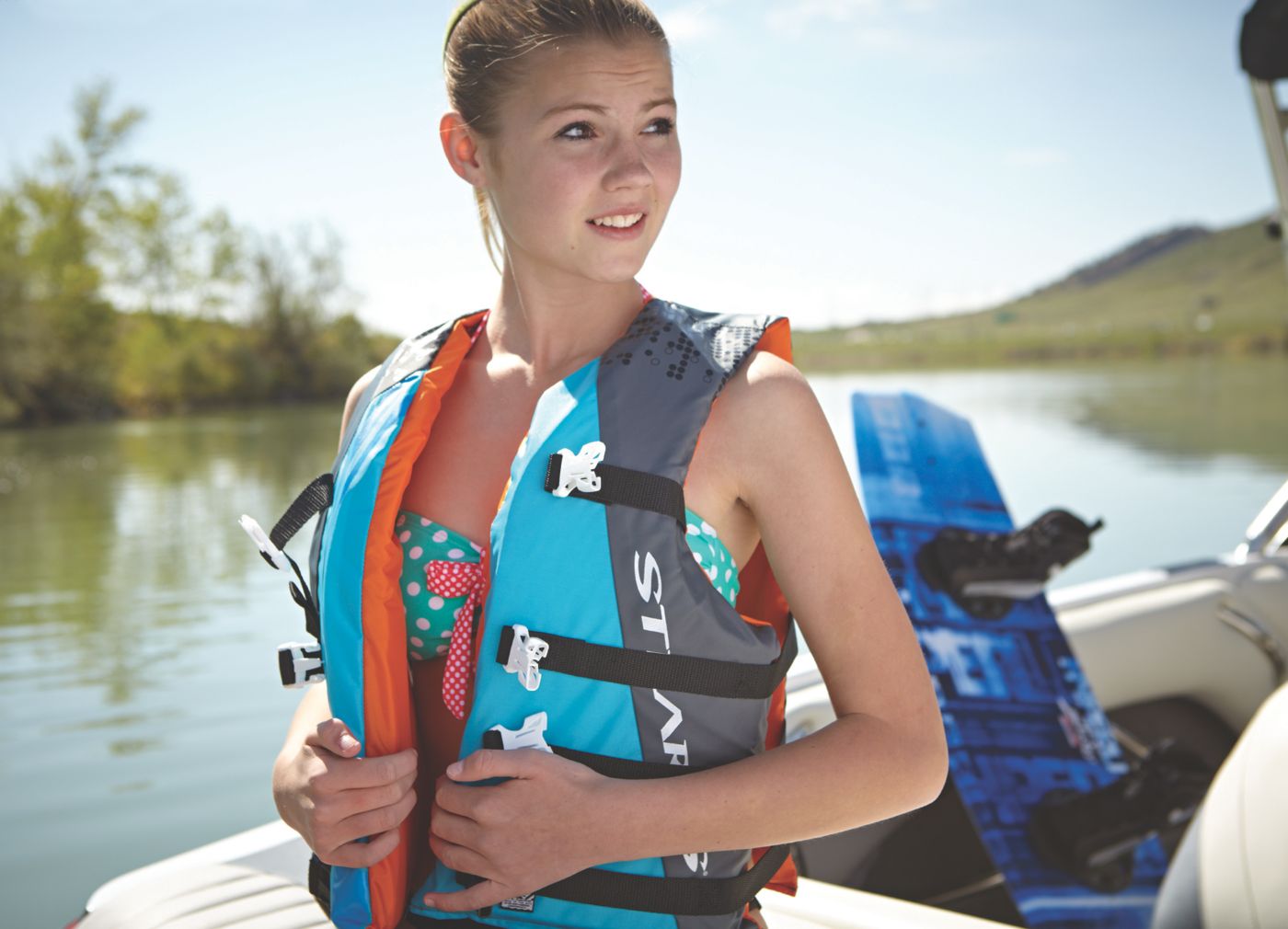No matter how or why you boat – fishing, family fun, exploring or just relaxation – the love of the water is the central thread that ties us all together. But make no mistake – water demands our respect and mindfulness if we are to use and enjoy it safely.
In keeping with the belief that enjoying the water can be simultaneously spirted and safe, Mercury Marine is proud to offer a series of Dockline blog posts relating to life jacket safety for infants, children, adults, pets and watersports participants – anyone who might get on a boat or otherwise be near the water. The purpose of this series is not to alarm you, but rather to help you prepare and protect yourself and your loved ones so all can safely enjoy life on the water for years and generations to come.
As any craftsman will tell you, having the right tool for the job makes all the difference. When it comes to watersports, wearing the right life jacket is essential.
Tubing, wakeboarding, skiing and kneeboarding are just a few of the exciting activities your boat might host under your watch. And with good reason: there’s a watersport for practically every age and level of athleticism. As a responsible boater you know that everyone on board must have a life jacket, and that every skier, tuber, etc., being towed must be wearing one. Chances are, you might also provide life jackets for your guests. The question is, how much thought and attention do you give the lifejackets used by those you tow?
If your answer is “not much,” it’s time to take a good look at your watersports PFD (personal flotation device) inventory. Naturally, the absolute most important attribute of PFDs is safety, and if a life jacket doesn’t provide that, nothing else matters. However, providing comfort and the least possible amount of restriction is not to be overlooked.
When assessing your current watersports life jackets, or selecting new PFDs, you need to ensure the following criteria are met, or at least considered:
 United States Coast Guard approved, clearly legible on the label
United States Coast Guard approved, clearly legible on the label- Proper fit in terms of size and published weight range for the wearer. If a watersports life jacket – properly adjusted with the straps tightened down snug – can be lifted over your chin or face while your arms are raised, it’s too big. This is especially important for watersports where the action is fast and at least minor spills are expected.
- In good condition, free of tears and rips. The buckles, zippers and straps should work properly, allowing the jacket to easily be put on or removed.
- As comfortable as possible. That means no chafing at the waist, neck or arms, and no sharp or jagged buckles or other hardware. Fit should be snug through the torso, but not so tight that it’s unpleasant or restrictive. A watersports PFD should also allow free range of arm and torso movement needed for the activity
- Have a reasonably wide variety of sizes available on the boat. You’ll want everyone on board to have an opportunity to participate and enjoy the experience, and that can’t happen if you have only a couple of sizes of watersports-suitable life jackets
Please consult your state’s Department of Natural resources for the specific PFD requirements in your area.
While there are very specific models for some watersports, you can find good all-around life jackets suitable for almost all such activities. It’s also important to note that riding a personal watercraft, kayaking/canoeing and stand up paddleboarding also typically require PFDs.
Remember: Quality, well-fitted life jackets are easy to wear all day, and PFDs that allow your family and guests to fully enjoy the experience will help make the outing all the more memorable.

